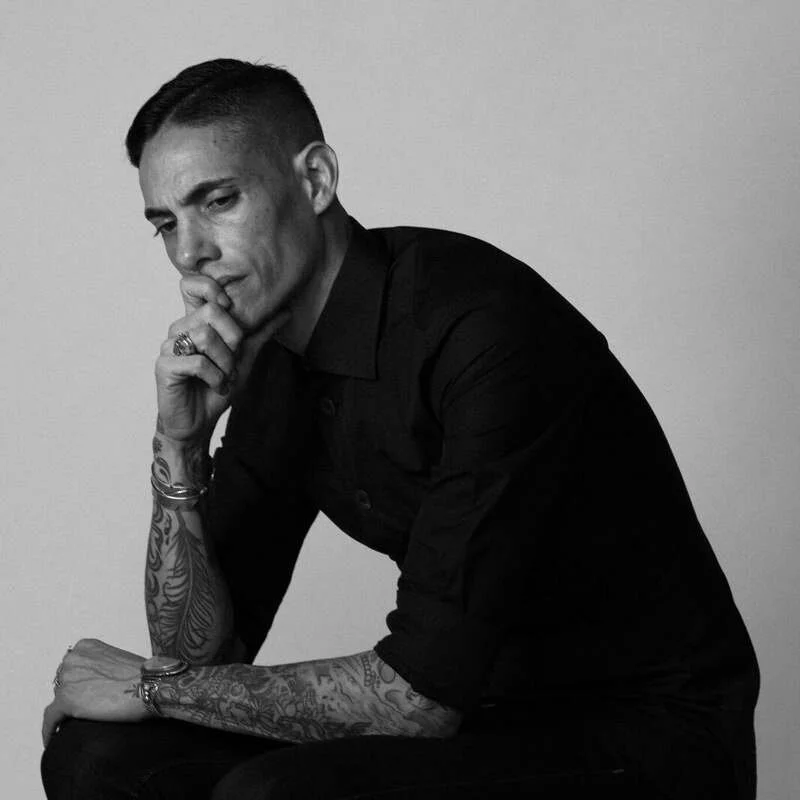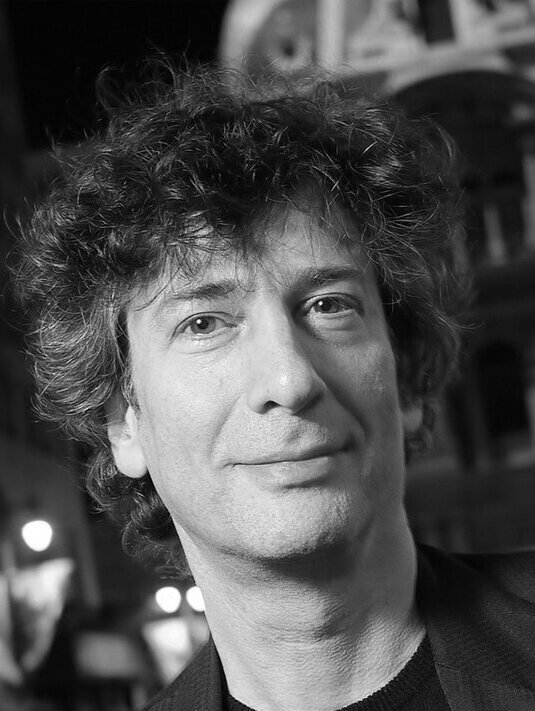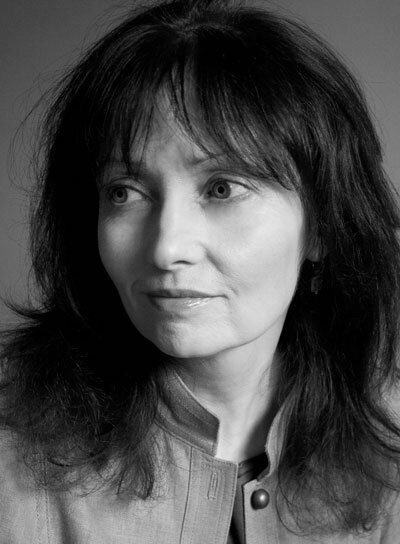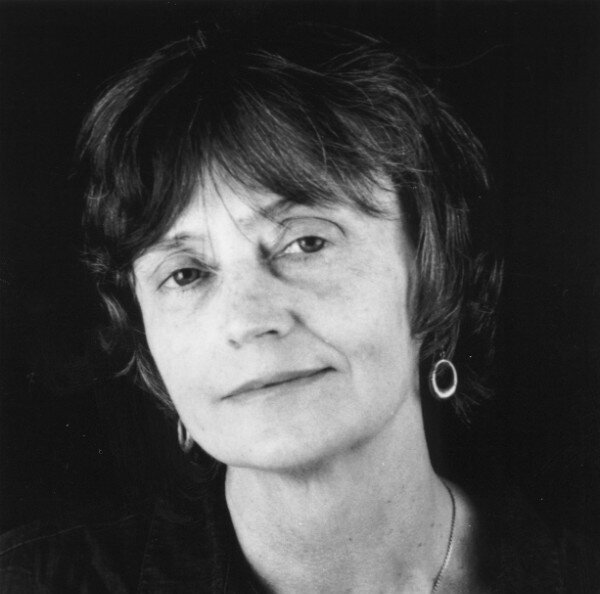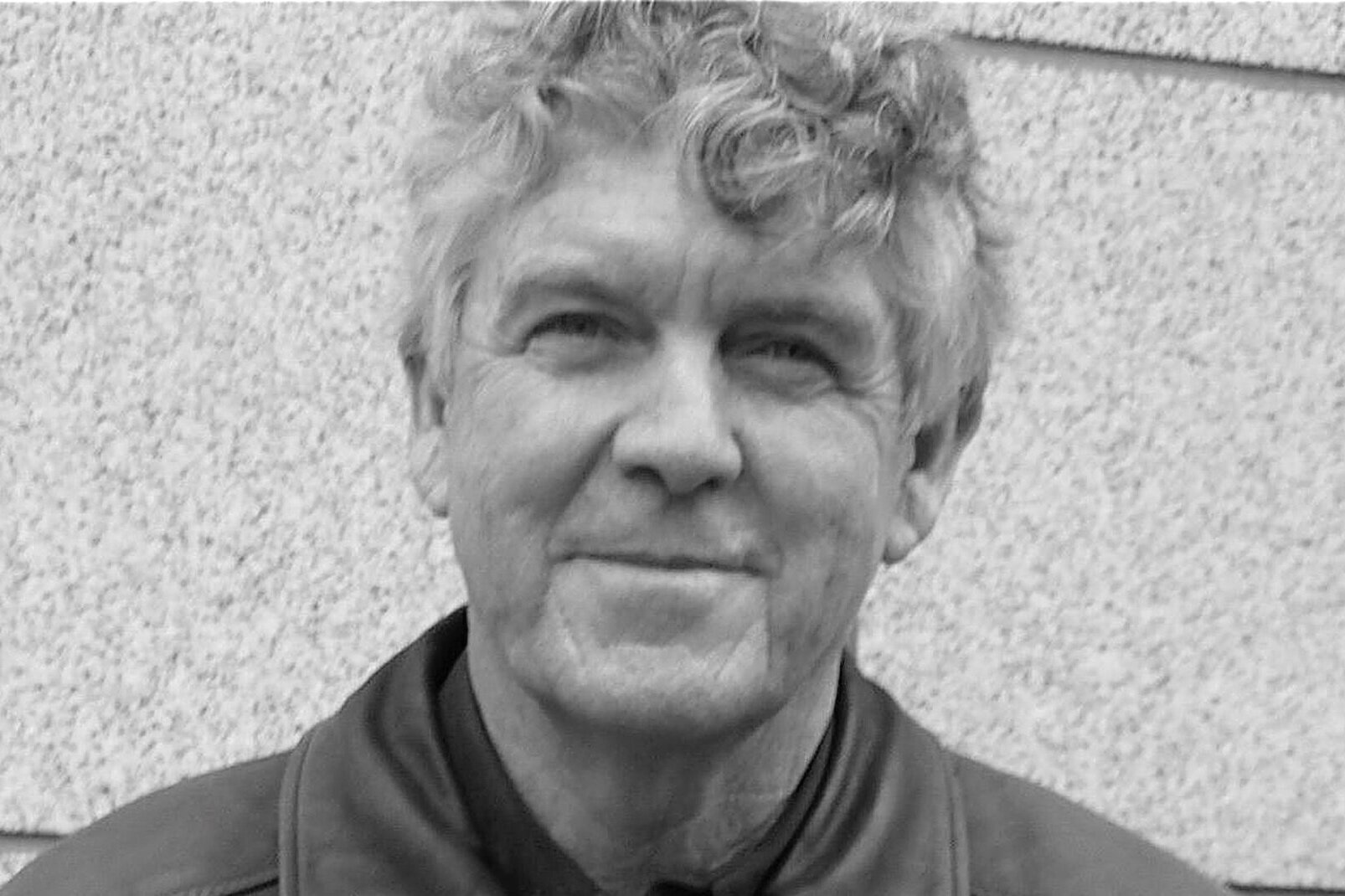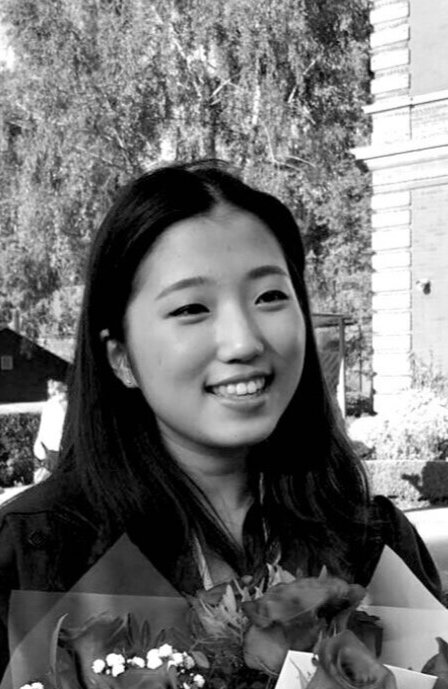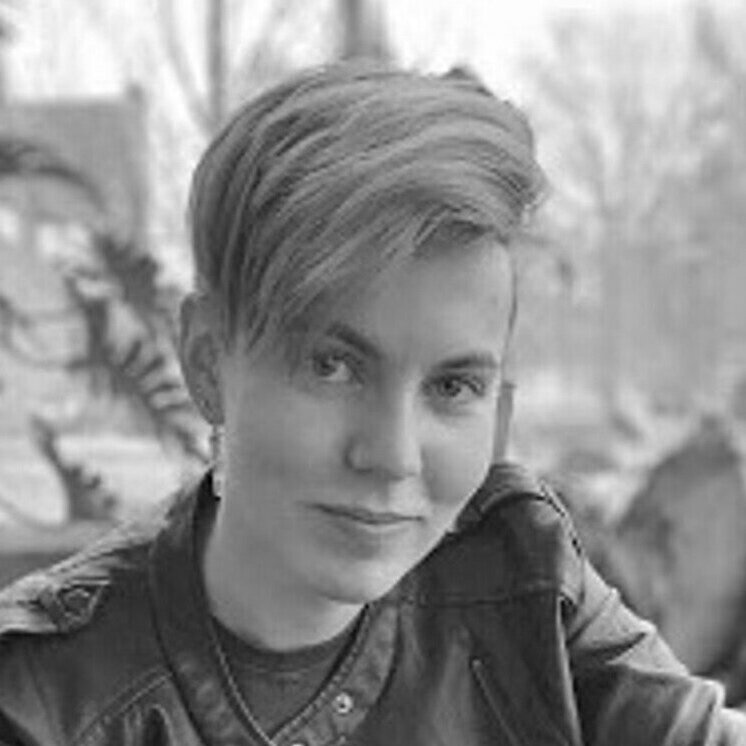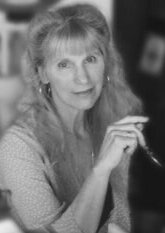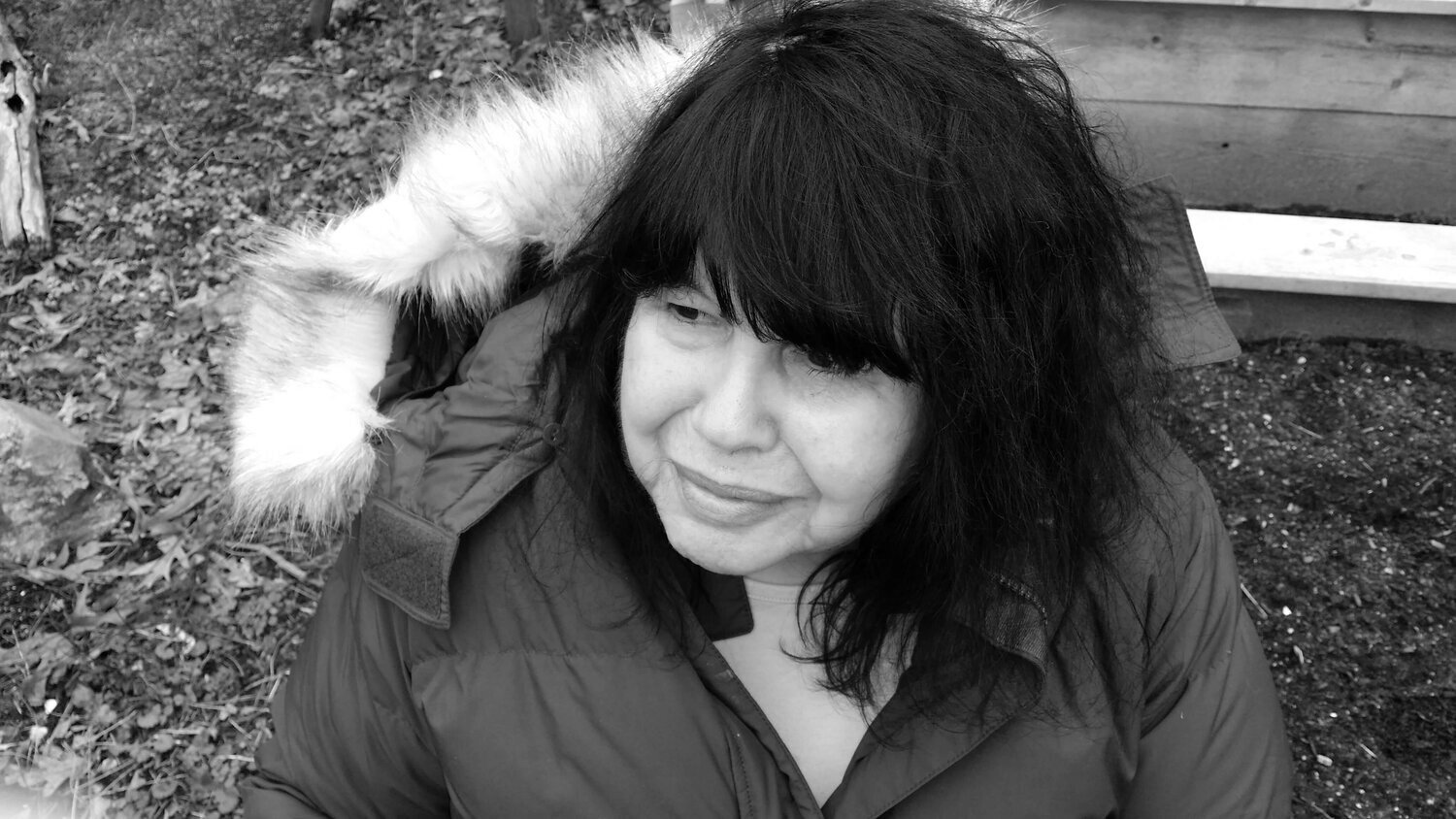MIA FUNK
The Creative Process is a traveling exhibition and international educational initiative and podcast. During Coronavirus times, some of our exhibitions have been postponed, but we’ve been continuing the podcasting process and various other initiatives that we have with universities. We have the participation of over 70 leading universities, schools and educational groups, as well as parallel projects to do with the environment that we're now working with a number of green groups in the run up to the UN Conference for Climate Change.
I feel so fortunate to work with wonderful groups of passionate students, young poets, and then those more established in their careers—leading artists, writers, creative thinkers across the arts and sciences. They’ve added their voice to The Creative Process whose works appear in the traveling exhibition, which is so inspiring.
The Creative Process는 순회하는 국제 전시회, 교육 이니셔티브 및 팟캐스트이에요. 지금은 코로나 바이러스로 인해 전시회는 잠시 중단되었지만, 팟캐스트 프로젝트와 대학과 함께하는 다른 다양한 프로그램을 적극적으로 운영하고 있어요. 따라서 우리는 70개 이상의 대학교 및 교육 그룹이 참여하고 있어요. 현재 우리는 기후변화를 위한 UN회의와 여러 녹색 그룹이랑 같이 콜라보를 하면서 환경과 관련된 몇 가지 프로젝트를 진행하고 있어요.
개인적으로, 열정적인 학생, 창조적인 청년들과 그리고 더 많은 경력을 쌓은 예술과 과학 분야의 선도적인 사람들 또 훌륭하고 영감을 주는 여러분들과 함께 할 수 있어서 정말 행운이라고 생각해요.
YL
There are so many projects that The Creative Process is part of, with so many different voices. How would this branch fit into the whole picture?
The Creative Process가 시작했거나 지금 참여하는 프로젝트가 많은데요, 이 새로운 시와 산문 분야는 전체 그림에 어떻게 들어 맞을 수 있을까요?
MF
We'll be sharing it as part of our main podcasts. We have been interviewing short fiction writers and poets from the beginning, but we haven’t had a chance to focus on them in as much depth as we would have liked to. Those who have already participated or will shortly be participating include Marge Piercy, Etgar Keret, Alice Fulton, Amy Gerstler, Alice Notley, Yusef Komunyakaa Daniel Khalastchi, David Tomas Martinez. With this project, we really want to celebrate the important work that poets and flash fiction writers do, particularly in these times where we're going through this pandemic. Many of us are reaching for comfort or ways of understanding the world. And one of those ways has always been poetry.
주요 팟캐스트의 일부를 공유 할 예정이에요. 저희는 처음부터 단편 소설 작가와 시인분들이랑 인터뷰를 해왔지만, 우리가 바라는 만큼 집중적으로 깊게 이해할 수 있는 기회가 없었어요. 이미 참여했거나 곧 참여할 작가는 Marge Piercy, Etgar Keret, Alice Fulton, Alice Notley, Amy Gerstler, Yusef Komunyakaa, Daniel Khalastchi, David Tomas Martinez, 그리고 더 많은 시인분들과 콜라보를 할 거에요.
이 프로젝트를 통해 시인과 ‘플래시 픽션’ 작가들이 우리 사회에서 정말 중요한 역할이 있다고 더더욱 강조하고 싶어요. 특히 이 시기에 우리는 코로나를 겪고 있으며, 많은 사람들은 글을 통해 세상을 조금 더 이해하고, 시를 읽으며 마음의 위로를 받죠.
YL
Yes, I'm really excited to hear all the different perspectives that these poets and writers will share, especially during this unprecedented time. Each poet or writer will bring something new to each episode. Are we looking to do themed episodes? Or will we have open submissions, allowing episodes to emerge based on the pieces we receive?
지금 이 전례없는 시대에 관한 시인들과 작가들의 감상과 작품을 들을 생각에 저도 기대되네요. 아마 각각 에피소드에 새로운 관점이 밝혀지겠죠. 이 프로젝트는 테마를 따라서 에피소드를 찾고 있거나, 아니면 상관 없이, 많은 주제의 제출된 시를 공개할 계획인가요?
MF
Well, I think that people tend to think about a lot of the same things, and many of the things are eternal. Like right now, these times have made us think about isolation, or family—these kinds of broad themes. We could possibly have some thematic podcasts, but I don't like to limit it to just that. I always say people should submit their best or more representative work, just work that is most meaningful to them.
글쎄요, 저는 사람들이 비슷한 생각이나 감정을 갖고 있는 것 같아요. 그리고 그런 테마는 역사적으로 항상 있었고, 영원하다고 생각해요. 외로움, 가족, 이런 종류의 광범위한 주제에 대해 생각하게 만들었죠. 주제별 팟캐스트가 있을 수는 있지만 여기에 제한하고 싶지는 않아요. 저는 항상 자신의 최고의 작품이나 가장 의미있는 대표 작품을 제출해야한다고 말해요.
YL
Literally, there's an infinite amount of themes and topics and ideas to write about. And for me, personally, I find it really interesting how we gather around and explore very similar spaces. You know, the fact that we have different but similar ideas about themes you said, like isolation, love, family. It seems like there are matters that universally call upon us to write about.
말 그대로, 쓸 수있는 주제와 아이디어는 무한하죠. 개인적으로 우리가 모여서 매우 유사한 아이디어를 탐색하는 것이 정말 흥미로워요. 서로 다르지만 또 비슷한 생각을 가지고 있다는 사실, 예를 들면 외로움, 가족, 사랑, 이런 주제로, 글에서는 우리 인생에서는 영원하다고 봐요. 보편적으로 우리가 글을 써야하는 이유이기도 한 것 같아요.
MF
So I like to leave the submissions open ended. I think if anything, we wouldn't do short fiction, mainly just because of space. I mean, properly long, short stories. I just don't think there's the space for it.
You also asked about how this will be a little bit different, because before we'd focus mainly on interviews. So this project will include interviews with an episode focusing on a single poet, but then we'll also be having episodes that are readings of poetry. Tell me about why poetry is the medium that speaks most to your imagination.
그래서 주제는 한정되지 않은 다양한 주제로 하고 싶어요. 글이 너무 길지만 않으면, 시든 단편 소설 ‘플래시 픽션’이든, 모두 좋을 것 같아요. 이 프로젝트의 약간 다른 점은 하나 있어요. 이전에는 우리가 주로 인터뷰에 초점을 맞추었다면, 이번에는 특히 작품에 많은 관심을 둘거에요. 그래서 이것도 한 분의 시인과 인터뷰도 하고, 시도 낭독하는 기회도 가질 거예요. 시를 왜 좋아하세요? 유영씨의 시는 무슨 의미가 있나요?
YL
I like poetry because it's very fragmentary in its nature. And I like how raw and bare it can be, how space can be so purposeful, in terms of how it looks on the page, but also just how it permeates our sense of hearing. The pauses that come with poetry. And I like the things that are missing in poetry. I think it makes it whole, which is kind of contradictory.
저는 조각처럼 단편적인 시가 끌려요. 읽을 때 가공되지 않은 순수한 감정이 노출 되어 있는 것 같아서 계속 시를 찾게 돼요. 글을 감싸는 여백이 예쁘고 강렬하기도 하지만, 그것이 우리의 청각에 어떻게 스며드는 지, 그리고 시와 함께 오는 찰나의 멈춤이 있어서 시가 좋아요. 그리고 저는 시에서 생략된 것들도 좋아해요, 왜냐면 그것이 전체를 이루고 있다고 생각해요. 일종의 모순이죠.
MF
Alice Notley once said to me that poetry is about now, that we are poetry. Novels or other kinds of sequential fiction are always focused on what happens next. And I had never seen it in that perspective before. But that goes back to what's close to you. You’re holding a poem in the present, really, you personally, individually have to experience it. And, of course, as you speak about empty spaces, and you're also a ceramicist.
예전에 시인 Alice Notley가 저한테 한 말이 생각나네요. 우리 인생은 시같다고, 시는 지금에 관한 것이고 소설이나 다른 순차적인 글은 “다음”이란, 미래에 일어날 일에 관한 것이라고 얘기했죠. 처음으로 그런 관점에서 봤어요. 우리는 시로 통해서 ‘지금’을 붙잡고 있는 거에요. 소설은 거리감이 있을 수도 있지만, 시는 우리 곁에서 친밀하게 느낄 수 있죠. 그래서 시를 경험해야 하는 이유기도 하지요. 하지만 똑같은 시도 다르게 경험할 수도 있겠죠.
그리고 유영씨는 시의 느끼과 비슷한 ‘공허함’, 빈 공간에 대해 생각하게하는 도자기를 만들죠.
YL
I do make ceramics. Both by hand building and on the wheel. I love it so much. And I think that my experience writing poetry and my experience working with clay, they really go together. Because in this medium of ceramics, you're always thinking about space as well, and how you're shaping it and how you're working with a very difficult material. Clay, I noticed it's more fickle. And it takes time to understand the rhythm and how it wants to be shaped.
네, 지금 도자기 수업하고 있어요. 손작업과 물레작업 둘다 배우고 있어요. 개인적으로 너무 좋아요. 시를 쓰는 것과 흙의 형태를 만드는 것이 비슷한 경험이라고 생각해요. 왜냐하면 이 도자기를 하면서 항상 공간에 대해서도 생각하고 그것을 어떻게 형성하고, 점토로 도자기를 작업하는 것이 얼마나 힘든지를 깨달았어요. 제 경험상 점토는 생각보다 엄청난 다양성과 유연성을 갖고 있는 재료이에요. 그리고 그 변화를 조절하는 리듬을 이해하는데 시간이 걸려요.
MF
So the pandemic has brought you back to Korea. And of course, you were born in Korea, but I know that like myself, you've lived in different countries. You left when you were two, so I wondered what it was like experiencing Korea, almost for the first time.
유영씨는 코로나로 인해서 지금 한국에 있죠. 물론 한국에서 태어나서 두살 때 떠났고 다른 나라에서 자란 것을 알고 있어요. 지금 한국에 잠시 돌아와서 경험하는 것은 어떤지 궁금하네요.
YL
Yes, because of the pandemic, I've moved back to Korea to be with my family. And I'm finally here, rooted at least for the time being. I've actually never lived in Korea, the way I'm living in it right now.
네, 코로나 때문에 가족과 함께있기 위해 한국으로 돌아왔어요. 지금 서울에 있는데, 많은 것을 경험할 수 있어서 새롭고 신기해요.
MF
I think it's interesting to come back home. It's almost like a new place, you're a stranger in your own land. I should also mention here that alongside interviews with poets and flash fiction writers that we’ll also be conducting some interviews with Korean artists, and writers, and those who are in the Korean diaspora.
집으로 돌아온다는 것은 특별한 경험인 것 같아요. 거의 새로운 장소, 당신의 땅에서 당신은 낯선 사람이 되는 것이죠. The Creative Process는 한국, 한국 디아스포라의 시인과 플래시 픽션 작가와의 인터뷰도 함께 할 예정이에요.
YL
And Mia, you’re also a very creative person, as an artist, a painter, and I was wondering if you could share some insight into your creative process.
그리고 Mia씨 역시 예술가, 화가로서 매우 창의적인 사람이죠. 당신의 창작과정에서 어떻게 영감을 받는지 얘기해줄 수 있어요?
MF
Well, I grew up around artists of many disciplines. I also grew up on university campuses—they were kind of my preschool. So I think I've always been asking questions. I had a realization through guest lecturing universities that maybe some students didn't have the same experience that I did. They were interested in the arts, but maybe didn't have access to some of these artists in the fields that they wanted to go into. And so I felt fortunate, because I helped launch a number of cultural centers, and because I’ve been working with literary museums for over 20 years, I could act as a bridge to bring together these people.
I could involve students in this project, so that they can start off on their artistic path. I like to be useful in that way. I love to see how they get inspired by these conversations, and in turn, how they inspire these notable artists who are maybe more advanced in their careers. And you know what, it reminds them about how they themselves got started. Sometimes you’re doing something so long, and you kind of forget what was the initial impetus. But then they remember. And it’s important never to forget, why we became artists in the first place.
물론이죠. 저는 여러 분야의 예술가들과 함께 자랐어요. 그리고 저는 대학 캠퍼스에서 자랐습니다. 일종의 유치원이었죠. 저는 항상 질문을 해왔던 것 같아요, 그래서 어렸을 때부터 배우는 것을 좋아하게 된 것 같아요.
그리고 제가 짐작했듯이 어떤 학생들은 예술에 관심이 있지만, 그들이 원하는 분야에서 활동하는 예술가들을 쉽게 접할 수 없다는 것을 깨달았어요. 그래서 저는 여러 문화 센터를 설립하는 것을 도왔고, 20년 넘게 문학 박물관에서 일하면서 일종의 “다리 역할”을 할 수 있어서 참 다행이라고 생각해요. 학생들이 예술적 길을 시작하도록 저는 학생을 도와주고 싶어요.
젊은이들이 이러한 대화에서 어떻게 영감을 얻었는지, 그리고 또한 그들은 어떻게 유명한 예술가들에게 영감을 주는지 알아보기도 하죠. 유명한 예술가들에게 자신이 어떻게 시작했는지 상기시켜 주기도 해요. 알잖아요, 때때로 당신은 무언가를 너무 오래하고 있을 때는, 초기의 추진력이 무엇이었는지 잊어 버릴 때가 있어요.
The Creative Process를 통해서 이런 것에 대해서 생각하게 돼요.
________________
To be included in special podcasts celebrating poetry and flash fiction. You can submit a reading of your work at www.creativeprocess.info/poetryprose and we'll get in touch about the possibility of taking part in an interview for the creative process.
시와 플래시 픽션을 나누고 감상하기 위한 특별 팟캐스트에 참여 하고 싶으시면, www.creativeprocess.info/poetryprose에서 당신의 글을 낭독한 음성 파일을 제출해주시면, 인터뷰에도 참여기회에 대해 연락 드리겠습니다.















